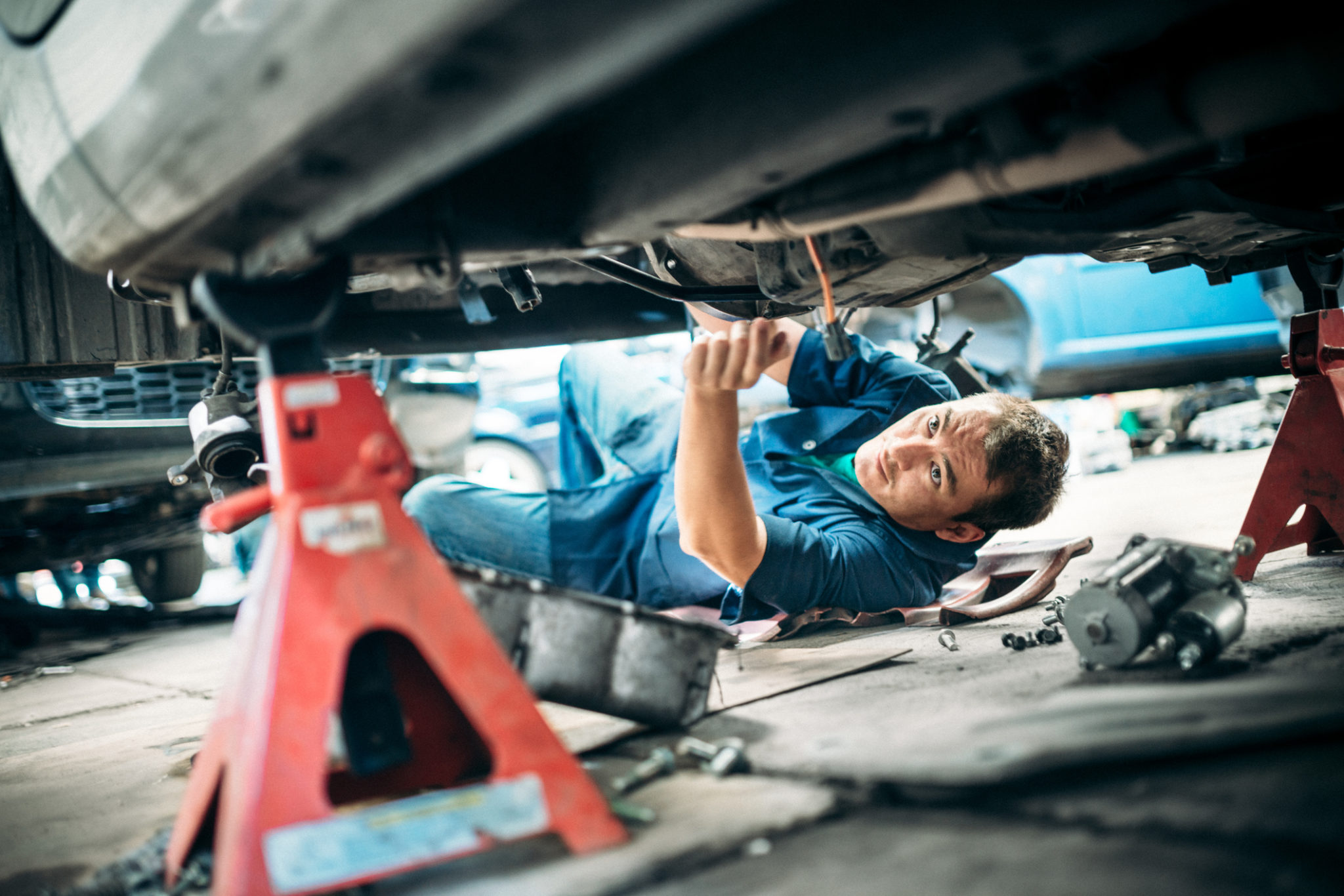
In my 30 years as a personal injury attorney, I’ve come across a myriad of accident causes. One particularly disconcerting scenario involves accidents caused by mechanical failures due to faulty vehicle repairs. This situation not only raises questions about liability and legal recourse but also spotlights the crucial role of trust and competence in the auto repair industry. Let’s dissect the various facets of this issue, from the repair shop’s responsibilities to the complexities of proving liability in such cases.
The Repair Shop’s Responsibility
When you entrust your vehicle to a mechanic for repairs or maintenance, a standard of care is expected. This duty encompasses:
- Professional and Skilled Repairs: The work should be executed with a high degree of care and professionalism.
- Adherence to Industry Standards: The mechanic should possess and apply the knowledge and skills expected in the field.
- Safety Assurance: Post-repair inspections and test drives are essential to ensure vehicle safety.
- Avoidance of Unnecessary Work: Ethics demand that mechanics refrain from performing superfluous repairs.
Negligent Repair Work
Despite the general reliability of the industry, instances of negligent repair work are not uncommon. Negligence in vehicle repair can significantly elevate the risk of accidents. For instance, a seemingly minor oversight like failing to reattach a hose after an oil change can lead to catastrophic consequences. Such negligence could render the mechanic and the auto repair shop liable for resulting damages.
Negligent practices might include:
- Inadequate Repairs: Failing to fully or correctly repair vehicle parts.
- Inspection Oversights: Missing significant, repairable issues.
- Incorrect Part Installation: Using inappropriate parts for replacements.
- Faulty Repair Procedures: Engaging in wrong maintenance techniques.
- Accidental Damage During Repair: Inadvertently causing additional damage to the vehicle.
- Illegal Vehicle Modifications: Altering the vehicle in ways that render it unsafe for public roads.
- Leaving Debris in the Vehicle: Overlooking objects in the vehicle post-repair.
Remember, the mechanic’s liability ends if you decline recommended repairs that later contribute to an accident.
Proving the Mechanic or Repair Shop Was Liable
Proving liability in cases of mechanical failure due to poor repairs is complex. The repair business might contend that the accident was a result of your negligent driving or poor vehicle maintenance post-repair. Gathering substantial evidence is critical. This includes:
- Photographic Documentation: Capturing images of the vehicle, the accident scene, and any injuries.
- Police Reports: Official reports can provide an authoritative account of the accident.
- Witness Statements: Eyewitness accounts can offer valuable perspectives on the accident.
- Expert Consultations: Insights from automotive experts can clarify technical aspects of the case.
In such cases, the experience and expertise of a skilled personal injury attorney become indispensable. At Lamber Goodnow, we offer comprehensive consultations and an in-depth investigation of each case. This includes examining police reports, accident scenes, witness testimonies, medical records, and your contract with the mechanic. We may also consult technical experts, review vehicle black box data, and secure any available video surveillance footage of the accident.
Consult with an Experienced Attorney
If you’ve been in an accident caused by mechanical failure, consulting with an experienced personal injury attorney is crucial. A lawyer can help navigate the complexities of such a case, ensuring all responsible parties are held accountable.
Protect Your Rights with Lamber Goodnow
Navigating the aftermath of a car accident caused by mechanical failure due to faulty repairs can be a daunting and complex task. At Lamber Goodnow, we understand the intricacies of these cases and are committed to providing the comprehensive legal support you need during this challenging time.
Have you or a loved one been involved in an accident due to faulty vehicle repairs? Don’t navigate this journey alone. Our team, led by seasoned personal injury attorney Marc Lamber, brings over 30 years of experience in handling such intricate cases. We are dedicated to ensuring that you receive the justice and compensation you deserve.
Choosing a Reputable Repair Shop
Prevention is always better than cure. Here are some tips for choosing a reputable repair shop:
- Check for Certifications: Look for ASE (Automotive Service Excellence) certification or similar qualifications.
- Read Reviews and Get Referrals: Personal experiences from trusted sources can be invaluable.
- Ask about Warranties: A good shop will back their work with warranties.
Selecting a reputable repair shop is crucial for ensuring vehicle safety. Resources like the Automotive Maintenance Repair Association (AMRA), the Automotive Service Association (ASA), and the Better Business Bureau (BBB) can guide you in finding reliable and ethical service providers.
Bottom Line
In my years of experience, both as a lawyer and as a family man, I’ve seen the ripple effects of accidents caused by mechanical failures due to faulty repairs. It’s not just about legal claims and compensation; it’s about the sense of security we all expect when we entrust our vehicles to professionals. If you find yourself in such a predicament, remember that legal avenues exist to seek justice and compensation. The right legal counsel can make a significant difference in navigating these complex waters.
FAQs on Accidents Caused by Mechanical Failures Due to Faulty Repairs
Q: What steps should I take immediately if I suspect my car accident was due to a mechanical failure from recent repair work?
A: If you believe your car accident was caused by a recent repair, it’s crucial to act promptly and methodically. First, ensure your immediate safety and health needs are addressed. Then, document the accident scene and your vehicle’s condition, focusing on areas recently repaired. Collect any evidence that might indicate a link between the repair and the accident, like unusual noises or malfunctions noticed prior to the accident. It’s also vital to keep all repair documents and receipts. Contact a personal injury attorney experienced in cases involving mechanical failures for guidance on the next steps.
Q: How can I differentiate between a car accident caused by mechanical failure due to faulty repairs and one due to my own driving error?
A: Differentiating between an accident caused by mechanical failure due to faulty repairs and one resulting from driving error can be complex. Key indicators of a mechanical failure include recent repairs, recurring issues post-repair, and signs of malfunction prior to the accident. An expert analysis from a mechanic or an accident reconstruction specialist can provide insights. Additionally, a detailed review of the vehicle’s repair history and any symptoms leading up to the accident can offer clues. An experienced attorney can help in gathering and interpreting this information.
Q: In the case of an accident caused by a mechanic’s negligence, who is legally responsible – the individual mechanic or the auto repair shop?
A: Determining legal responsibility in an accident caused by a mechanic’s negligence depends on various factors, including the employment status of the mechanic and the specific circumstances of the negligence. Generally, if the mechanic is an employee of the repair shop, the shop may be held liable under the legal doctrine of “respondeat superior,” which holds employers responsible for their employees’ actions performed within the scope of their employment. However, if the mechanic is an independent contractor, they might be personally liable. Consulting with a personal injury attorney can help clarify liability in your specific situation.
Q: What evidence is most compelling in a lawsuit against a repair shop for an accident caused by faulty vehicle repairs?
A: In a lawsuit against a repair shop for an accident caused by faulty repairs, compelling evidence typically includes:
- Detailed repair records and receipts showing the work done on the vehicle.
- Expert testimony from independent mechanics or accident reconstruction experts linking the repairs to the accident.
- Photographs of the vehicle immediately post-accident, highlighting the failed parts.
- Eyewitness accounts, if available, and any police or accident reports.
- Documentation of similar past incidents or complaints about the repair shop, if any. An experienced attorney can assist in effectively compiling and presenting this evidence to strengthen your case.

